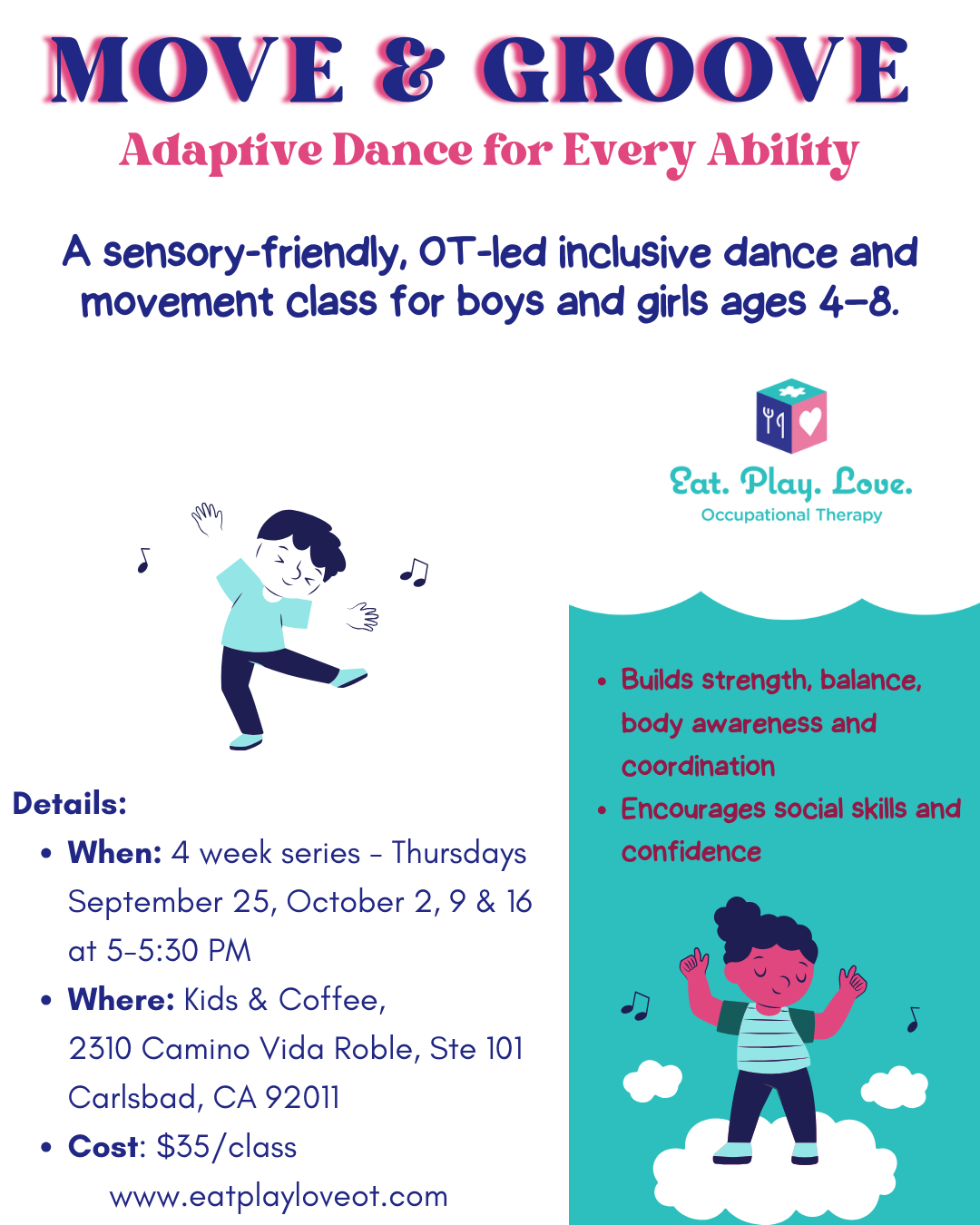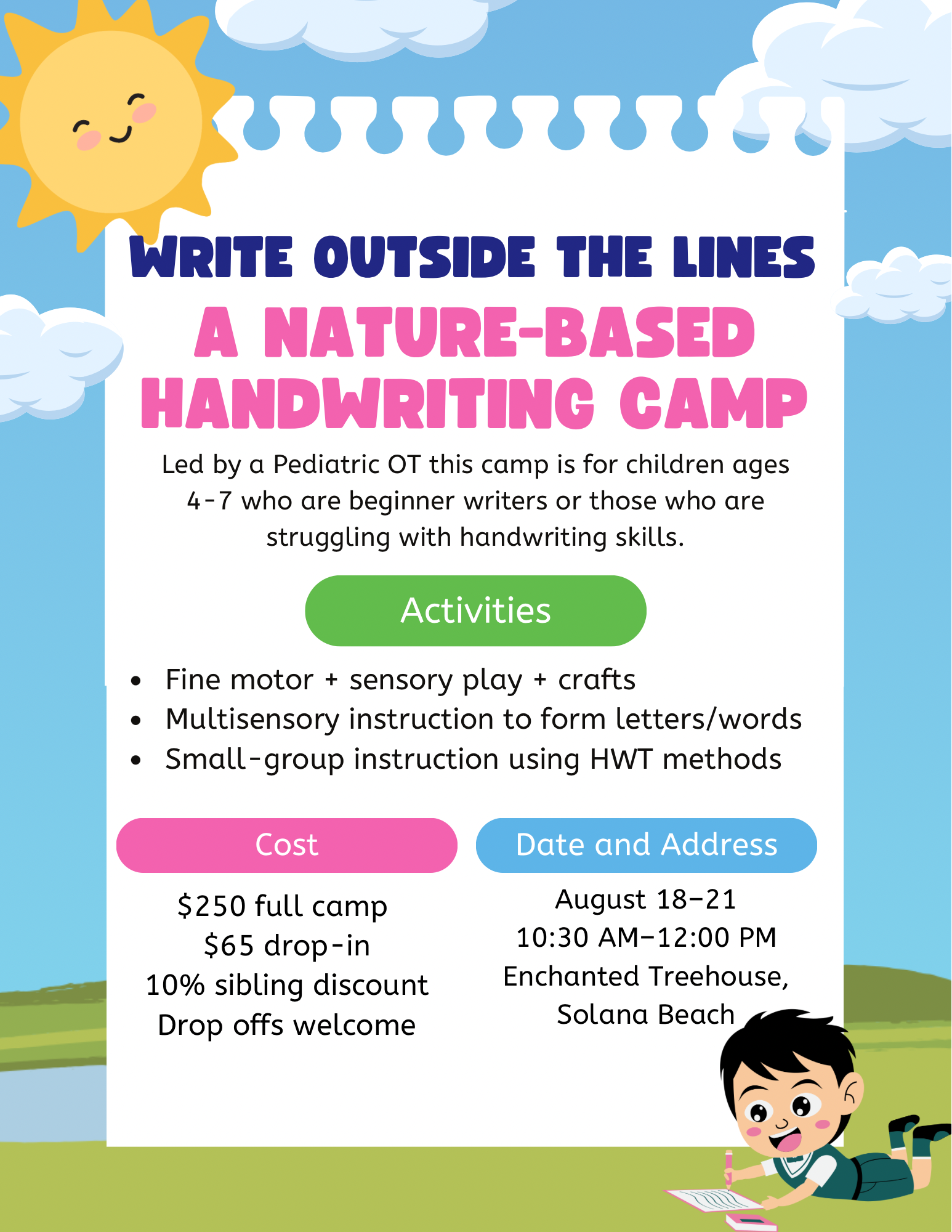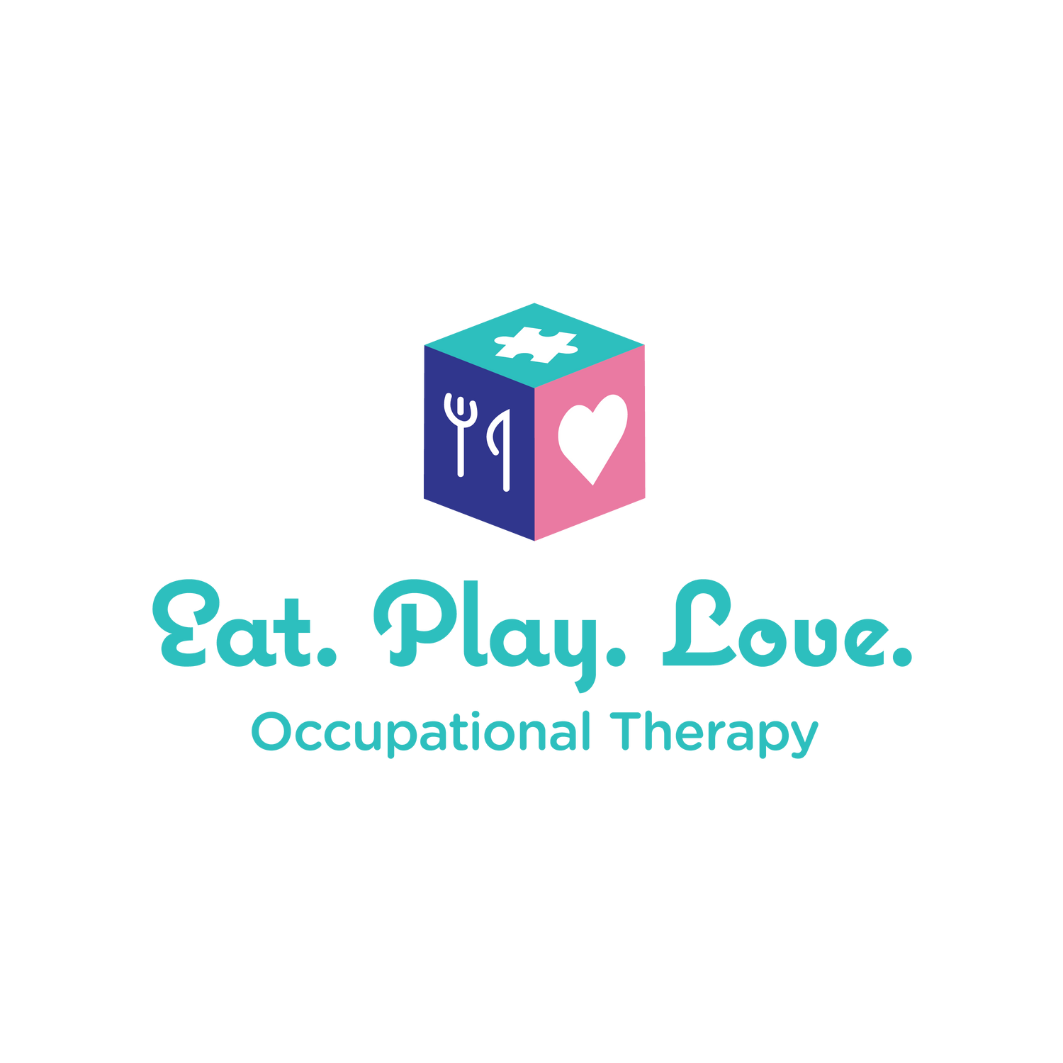Infant to Toddler Feeding Development Milestones
Understanding Feeding Milestones for Infants and Toddlers: Insights from a Pediatric Occupational Therapist
As a pediatric occupational therapist, I have had the privilege of working with numerous families to help their children achieve critical feeding milestones. Feeding skills are an essential part of a child's development, impacting not only their nutrition but also their motor skills, sensory processing, and overall growth. In this blog post, I will outline key feeding milestones for infants and toddlers, discuss the importance of these milestones, and provide tips on how to support your child through these developmental stages.
Importance of Feeding Milestones
Feeding milestones are crucial indicators of a child's developmental progress. They encompass a range of skills, including oral motor development, coordination, sensory processing, and behavioral responses to eating. Meeting these milestones ensures that children receive adequate nutrition, develop appropriate motor skills, and establish healthy eating habits. Moreover, feeding difficulties can be early indicators of underlying developmental or health issues, making it essential to monitor and address them promptly.
Feeding Milestones for Infants (0-12 Months)
0-3 Months: The Foundations
- Sucking Reflex: Newborns are born with a sucking reflex, which is essential for breastfeeding or bottle-feeding. This reflex helps them latch onto the nipple and draw milk into their mouths.
- Rooting Reflex: This reflex helps infants find the breast or bottle nipple by turning their heads toward any touch on their cheeks.
- Swallowing Coordination: Infants at this stage are learning to coordinate sucking, swallowing, and breathing, which is crucial for safe and efficient feeding.
Support Tips: Ensure a comfortable feeding position and provide a calm feeding environment. Respond promptly to hunger cues to reinforce the rooting and sucking reflexes.
4-6 Months: Transition to Solids
- Oral Motor Skills: Babies begin to develop better control over their tongues and mouths, allowing them to handle different textures.
- Introduction to Solids: Around six months, babies can start eating pureed foods. They may also begin showing interest in what others are eating.
- Improved Jaw Stability: Babies start to use their jaw more effectively, which helps in managing thicker textures.
Support Tips: Introduce single-ingredient purees gradually, observe for any allergies, and allow the baby to explore food with their hands to encourage sensory development.
7-9 Months: Increasing Variety
- Chewing Skills: Babies begin to develop chewing skills, even before they have teeth, using their gums to mash soft foods.
- Pincer Grasp Development: This fine motor skill allows babies to pick up small pieces of food, promoting self-feeding.
- Drinking from a Cup: Some babies may start practicing drinking from a sippy cup or an open cup with assistance.
Support Tips: Offer a variety of soft foods in different textures, and encourage self-feeding to develop fine motor skills. Introduce a sippy cup with water to practice drinking.
10-12 Months: Increasing Independence
- Self-Feeding: Babies show more interest in self-feeding, using both hands and utensils.
- Eating a Variety of Foods: By this age, babies should be eating a variety of mashed or finely chopped foods from different food groups.
- Drinking Proficiency: Many babies can drink from a sippy cup independently and may start learning to drink from an open cup.
Support Tips: Provide appropriate utensils and encourage the use of fingers and spoons. Ensure meals are balanced and introduce new foods to broaden their palate.
Feeding Milestones for Toddlers (12-36 Months)
12-18 Months: Building on Skills
- Transition to Table Foods: Toddlers can handle a variety of textures and are more adept at chewing and swallowing solid foods.
- Using Utensils: They begin to use spoons and forks with more precision.
- Drinking from an Open Cup: Many toddlers can drink from an open cup with minimal spillage.
Support Tips: Offer a wide range of healthy foods, encourage self-feeding with utensils, and provide opportunities for practice with an open cup.
19-24 Months: Refining Skills
- Improved Coordination: Toddlers have better hand-eye coordination, making self-feeding more efficient.
- Increased Appetite Variability: It's normal for toddlers to have fluctuating appetites and varying interest in food.
- Exploring New Foods: This age is a great time to introduce a variety of flavors and textures to prevent picky eating.
Support Tips: Be patient with changing eating patterns, continue offering a variety of foods, and involve toddlers in meal preparation to increase interest in new foods.
25-36 Months: Mastering Feeding Skills
- Mastering Utensils: By age three, most toddlers can use utensils effectively and may start practicing with a knife for soft foods.
- Predictable Eating Patterns: Toddlers establish more predictable eating patterns and may show strong food preferences.
- Social Aspects of Eating: Mealtime becomes more social, with toddlers engaging in conversations and family meals.
Support Tips: Encourage family meals to model positive eating behaviors, respect food preferences while continuing to offer new foods, and ensure consistent meal and snack times.
Addressing Feeding Challenges
While many children progress through these milestones without significant issues, some may experience feeding challenges. As a pediatric occupational therapist specializing in feeding, I often work with children who have difficulty meeting these milestones due to a variety of reasons, including:
- Oral Motor Delays: Difficulty coordinating the muscles used for eating can lead to challenges in chewing and swallowing.
- Sensory Processing Issues: Some children may be sensitive to certain textures, tastes, or smells, which can affect their willingness to try new foods.
- Social/emotional and Behavioral Factors: Picky eating, refusal to eat, or disruptive behaviors during meals can hinder feeding progress.
Tips for Parents and Caregivers
1. Create a Positive Mealtime Environment: Ensure that mealtimes are relaxed and free of pressure. Encourage family meals to model healthy eating behaviors.
2. Offer a Variety of Foods: Introduce new foods alongside familiar favorites to expand your child's palate.
3. Respect Hunger and Fullness Cues: Allow your child to eat according to their hunger and fullness signals, and avoid forcing them to eat.
4. Encourage Self-Feeding: Provide opportunities for your child to practice self-feeding with appropriate utensils and finger foods.
5. Consult with Professionals: If you have concerns about your child's feeding skills, seek advice from a pediatric occupational therapist or a feeding specialist.
Conclusion
Feeding milestones are a critical aspect of a child's development, encompassing a range of skills from oral motor control to sensory processing and social behaviors. By understanding and supporting these milestones, parents and caregivers can help their children develop healthy eating habits and achieve their full developmental potential. If feeding challenges arise, consulting with a pediatric occupational therapist can provide valuable insights and interventions to support your child's progress.
Resources for Further Reading
- [HealthyChildren.org]( https://www.healthychildren.org)
- [Kids Health] (https://kidshealth.org)
- [The OT Toolbox] (https://www.theottoolbox.com/oral-motor-problems-and-feeding/)
- [Your Kid's Table] (https://yourkidstable.com/feeding-milestones/)
- [Feeding Matters] (https://www.feedingmatters.org/)
By staying informed and proactive, you can ensure that your child meets their feeding milestones and enjoys a positive, healthy relationship with food.
If you have concerns about your child's feeding skills, contact your pediatrician or reach out for a free OT consultation.










